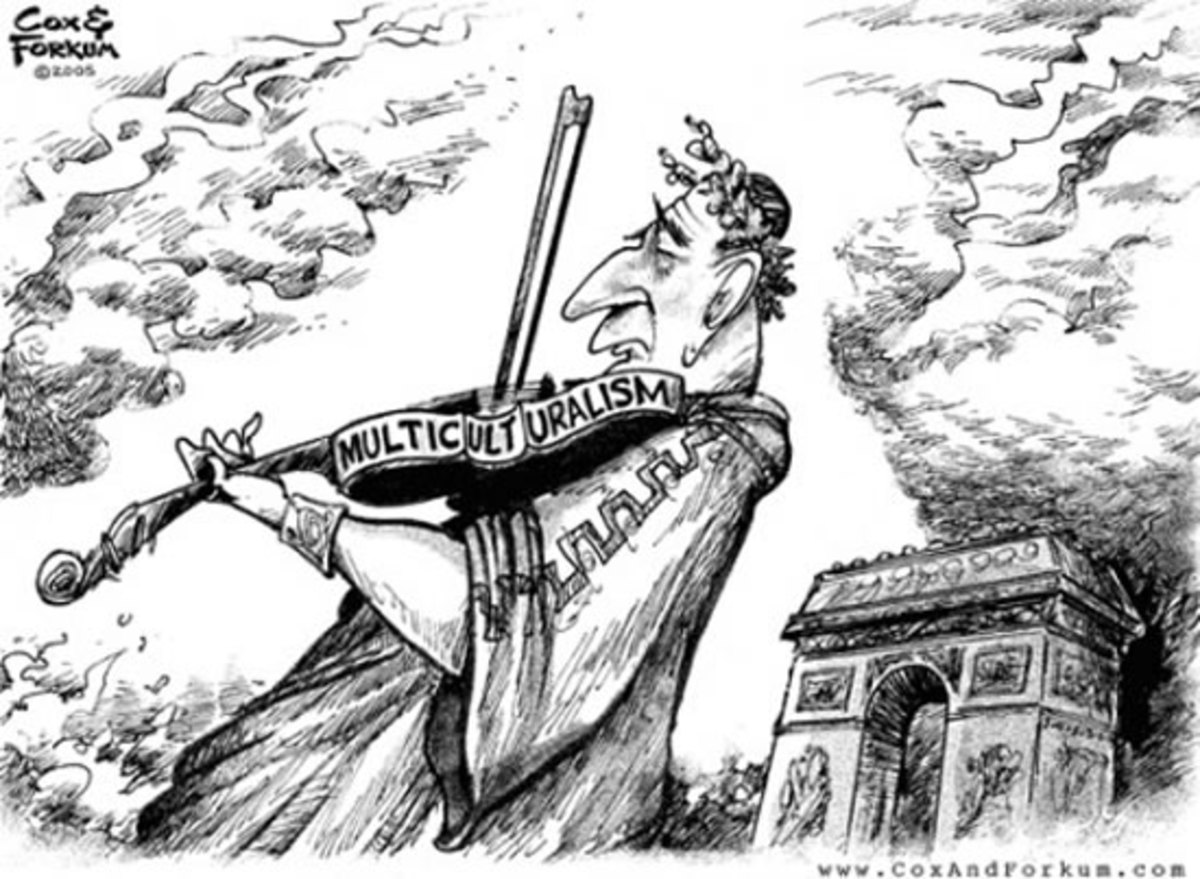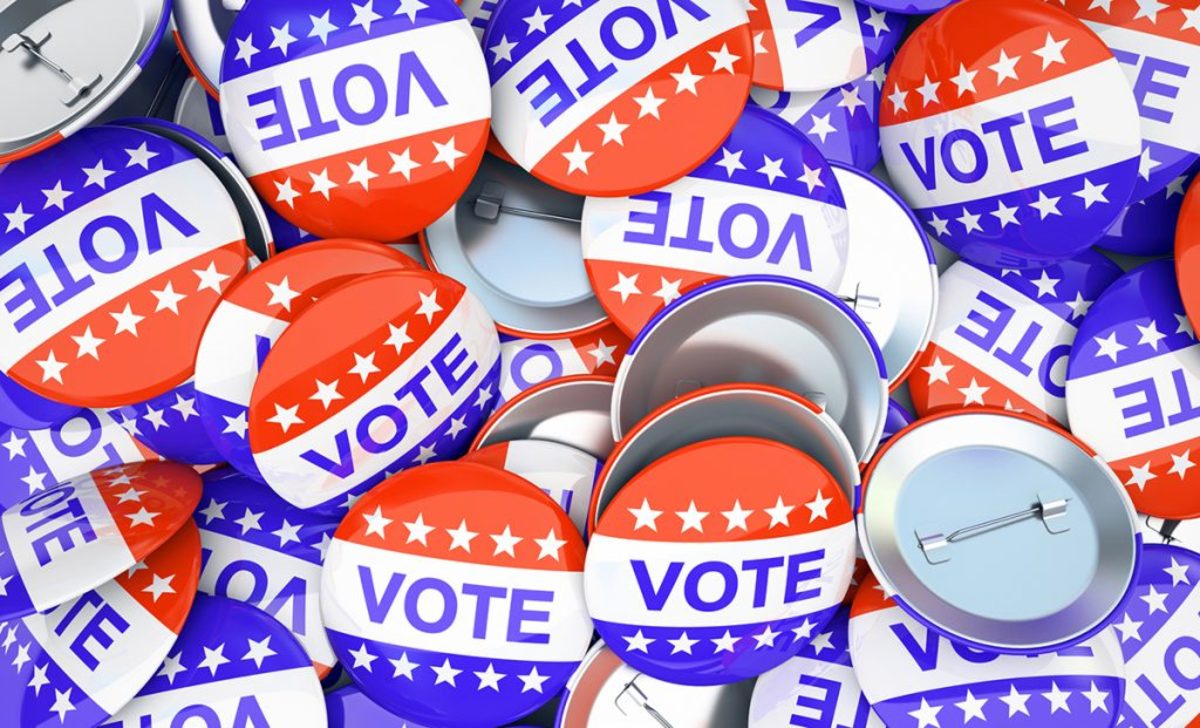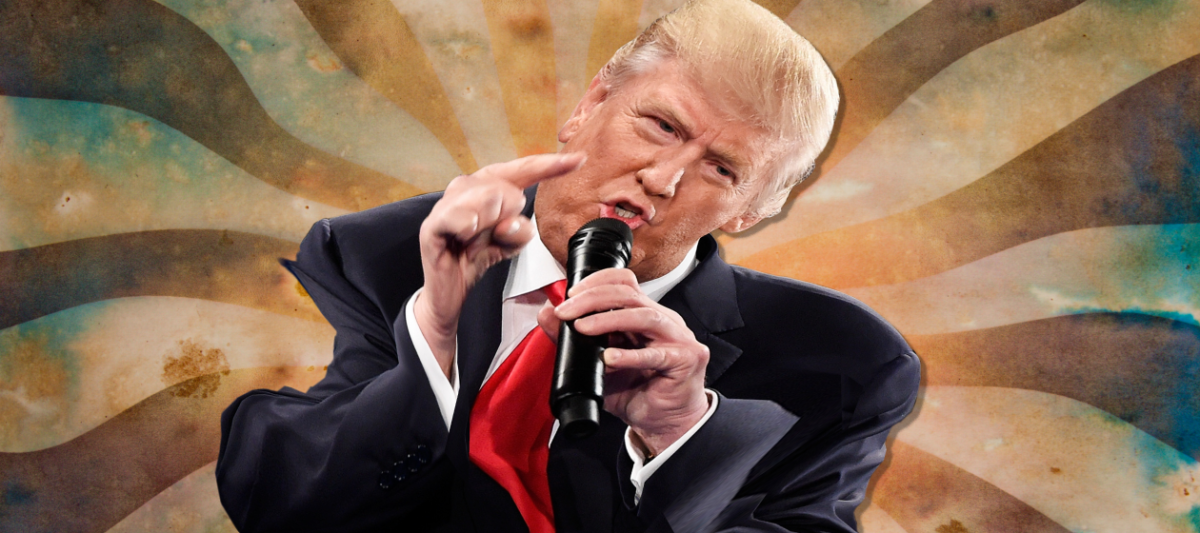National Identity - Under Fire in America

The United States of America as a nation is quite young as compared to long-standing societies such as China, Japan, Turkey, Egypt, and Greece. It’s no secret that these older nations are somewhat different today than at their origin, such as in their governments, land mass size, and economic base. Despite the changes, they all have a common thread which can be traced back to day one; a concept we now call National Identity. National Identity is a broad term with a seemingly expanding definition, one easier to understand than its definition. National Identity is “a sense of a nation as a cohesive whole, as represented by distinctive traditions, culture, and language.” Secondarily It provides the means for “a sense of belonging” and certainly is the backbone for “patriotism” or “national pride.” The Psychological community terms National Identity as "an awareness of difference", a "feeling and recognition of “we” and “they,” clearly seeing it as way to differentiate members of one nation as compared to another. What’s often considered intriguing is that unlike most other social constructs, National Identity has no finite connection between an individual’s race, creed, religion, or nation of birth; meaning that a new entrant into the country could adopt it immediately if they chose to. By first looking at a few of the aforementioned nations and then pivoting back to America, the concepts behind the term will become evident, as well as the pitfalls associated with experimentation into change.

Egypt
The National Identity of Egypt is a good place to look at first, simply due to the fact that Egypt in some form has existed for over 5,000 years. A sense of being unique and also separate from much of the rest of the world has been a pillar of Egyptian National Identity and for thousands of years, up until the influence of Islam; the National Identity never came into question. A gradual modernization leading up to the British occupation and then the successive reversal after they were overthrown led to some discord, with many Egyptians willing to accept the Western world’s science and technology but not its moral and intellectual values, without understanding that the two could not be separated. During the reversal, the nation gravitated back to Islam and more Eastern values as well as to embrace their cultural heritage; again connecting them to times of pyramids and statuary. People both young and old were confused by these repeated changes. Their immediate implementation in school curricula, the press, radio, and television didn’t help matters. Many blame those sudden and repeated attempts to change the National Identity for the cultural and social damage that occurred in the years between 1941 and 1980. Recall that even the name of the country was changed to the United Arab Republic during the 1960’s. The stability of a national identity for Egypt in retrospect was seen as critical for the stability of the entire Middle East as Egypt is the hub for all commerce in the region. Egypt is located in a position that it can either link the Arab world or divide it, simply by its land mass. The events now known as the “Arab Spring” all lead back to Egypt and the world is still reeling from the power shift that took place. Egyptians who lived through the past 60 years have seen failure after successive failure and viewed the country’s political structure unravel time and time again. These failures have led to endemic anxiety and rage among Egyptians and a society-wide quest for redemption or return to their Egyptian roots; a recovery of their National Identity.

Japan
Japan is another country worth further study as their idea of National Identity borders on obsessive. The Japanese society which dates back to BCE dates has spent more energy, manpower, and time in their struggle to break free from the yoke of Chinese cultural influence. Geographically Japan is part of the Pacific Rim, but because it is an island, has made the cultural impact of the Orient less evident. History shows us that the National Identity of Japan was closely related to ethnicity and their isolation from the rest of the world made it possible. For a thousand years, the cultural practices and lifestyles of the Japanese people existed with a high degree of stability, steeped heavy in tradition and honor. World War II and its aftermath saw a shift in Japanese National Identity with post-war industrialization, the importation of foreign workers, and many other outside influences dramatically changed the nation. Formerly most Japanese people saw themselves as superior to anyone else in the world and considered Westerner’s as barbaric and primitive that is until they were summarily defeated with superior technology by America. After the war ended, Japan was left in shambles most of the industries and transportation networks in all the large cities were destroyed or severely damaged. The citizens were faced with severe food shortage for years following the war, the casualties of the nuclear bombs were massive, and the long-term impact of the radiation would haunt them seemingly forever. The economy was almost totally paralyzed from the destruction and the black market coupled with runaway inflation loomed heavy. The once proud National Identity of the Japanese people was destroyed and it was obvious that if it re-emerged, it would not resemble that of the past. Historians will say that with huge levels of government intervention that the National Identity has been restored but only on a symbolic front. Yes, the age old “need” to be free from Chinese influence was felt as recently as three years ago with anti-Japan protests in China over territorial disputes being countered in Japan with a disdainful look; again exhibiting that superiority from their history while watching the barbarians loot and destroy. Now however, Japan is more influenced by the Western world than the Orient and less “Japanese” than ever, with many blaming American influence. A recent surge in nationalism has given rise to more questions instead of answers. The laser-like focus by the Japanese in their pursuit of progress seems to be on a collision course with the way of the Samurai and Western icons and cultural symbols will certainly be part of the conflict.

Fragility
As we can see by these two examples, National Identity can be lost, found, changed, rebuked, and recycled but in both instances we can see always stays anchored in the past; the period when the nation was born and developed, the starting ground, the original people, the original culture, and the original way of doing things holds more weight than anything current. The origins of the emotional connections people have to their countries, their national pride, and their willingness to defend the nation in times of war comes from their history. National Identity is a social construct and the formation of a National Identity results from commonality among the population, just as we see in tribalism and other clan identities, yet on a much larger scale. Things like language, religion, race, culture, and beliefs are the core tenants behind the emergence of this commonality, which in turn influences the generations that follow and further strengthens the connection to those key things. These things become ingrained into the lives of the population and if unchallenged will result in a lasting National Identity. Symbols such as a nation’s flag and their holidays and other significant events also play an influential role in the National Identity, especially events such as a War.

You are Free to Leave
Some of the interesting things to consider about National Identity are that acceptance is not mandatory for the citizens living within a nation and change, such as shown in the Egyptian example, can be initiated. Acceptance of the changes unfortunately for those instigating them is also not mandatory. A National Identity and acceptance of it tends to influence behavior to a high degree especially in the dynamic where people deal with outsiders. If the citizens feel that the National Identity is a positive one and meets their needs, then we can expect them to participate, if not then they may protest or attempt to change it. The sense to “belong” carries a lot of weight, especially today when so many people who claim to be their own person desperately struggle to find “a place” to fit in. When tragedies occur such as America experienced on September 11th, there usually is a coming together of people; a time when all petty conflicts are put aside and everyone wears their patriotism proudly, flag fly, red, white, and blue become more prominent, and the American Eagle soars across the sky. Yet, when divisionary politics, globalization, and racial tension exists, National Identity is often attacked and used as a tool of further division politically, genetically, or culturally.

Learning from Example
Our current political climate is heavily awash in a battle for control of the National Identity and current events are being injected into the debate as both sides attempt to tip the scales in their favor. It is surprising to see that some people who claim to be on the same team are actually speaking to the people on varying, yet opposite sides of issues, attempting to claim National Identity as their own. With the recent executions of 49 Americans at the hand of another Islamic terrorist, the rhetoric climbed another notch. Presidential hopeful Donald Trump (R) has been very vocal on immigration and his platform calls for halting Muslims to enter America until they can be properly vetted. Yet Paul Ryan, the Republican Speaker of the House, repeatedly keeps saying “that’s not who we are;” attempting to invoke the “nation of immigrants” part of our National Identity to give his point credibility. Unfortunately he also tried to marry his words with the 1st Amendment and religious freedom, things which only apply to American citizens, not immigrants, regardless of their origin. This example is just one of many but it really gets to the crux of things; National Identity means different things to different people and is very subjective in its application.

Founders
The National Identity of America comes from our founders, not just the people who signed the documents, but everyone who lived here when America was born. The predominantly white Christian populace that tilled the soil, built the homesteads, and fought the Revolutionary War to gain our freedom were the ones who laid the groundwork. The principles of hard work, innovation, democracy, and equal rights were ingrained on everyone from the start. Some of the practices and policies held by early America were wrong, such as slavery and monopolization, but society came to the rescue and remedied those situations. Our victories in combat wove being winners into our National Identity, just as our inventiveness made us the global leader in industry, and our high standards made dealing with America honorable and accepted by the world. We’ve gone further than any nation in expanding equal rights, personal freedoms, and we have a foreign policy that at times seems harsh but actually is respectful of the world. Yet those things which are the hallmark of our National Identity are being suppressed with attempt after attempt to change them and abide by globalism and absolute government power.

Wolves on the Outskirts
Progressive politics, immigration both legal and illegal, and influences by radical groups aim to change the National Identity of America, it's no secret. Many of our youth even claim to be ashamed of being “American” but when queried as to why can only cite propaganda fed to them in indoctrination centers they call schools. Our Executive branch under President Obama has hijacked the rights of Congress, our borders are challenged and compromised with ease, illegal immigrants get treated better than citizens, Veterans are treated worse than slaves in some cases, and Christianity is shoved aside for radical Islam and all of its evil. The level of distrust is at an all-time high for elected officials, immoral acts and behavior are considered worthy of applause, and a new favored-treatment group seems to appear daily. When Americans are counted by their race, religion, or anything else first and their citizenry second then America as a nation loses. When the media and the government work hand in hand to control and coerce the people into believing their false narrative, America loses. Our National Identity is at stake and unless we all remember and accept the basis of what this great nation is, then it’s certain to change for the worse.

Why?
Probably the single largest looming question is WHY? Why do the Progressives want to destroy our National Identity? Why do they want to see America infiltrated with foreigners who will dilute our culture? What is their end-game?
To put it bluntly, its part of their ground game to advance Statism; the corporatizing of America with the government being the CEO and the well-heeled donor class being the aristocrats who pull the strings. Not all the way Socialist but certainly not the Republic we live in now, this philosophy which was once reserved for Democrats is now finding purchase in both Parties. The goal of the government is to control all aspects of our lives through regulation, taxation, licensing, controlling accreditation, legitimacy, and indoctrination, all in the name of power. This cannot occur as long as people have a National Identity which has such strong ties to individual liberties and freedom, so they must destroy it and replace it with one of their own making.
Charlie Daniels
I’d like to close with a song lyric from a true great American, Mr. Charlie Daniels. This excerpt is taken from the song “In America” and says more in a few lines than almost any document in existence.
From The Sound up in Long Island
Out to San Francisco Bay
And everything that's in between them is our own
And we may have done a little bit
Of fightin' amongst ourselves
But you outside people best leave us alone
'Cause we'll all stick together
And you can take that to the bank
That's the cowboys and the hippies
And the rebels and the yanks
You just go and lay your hand
On a Pittsburgh Steelers' fan
And I think you're gonna finally understand








